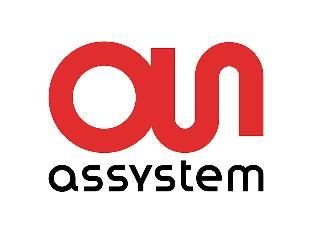Assystem Gender Equality Chair
 The Gender Equality Chair, part of the ‘social component’ of the Institut Gaston Berger, aims to mobilise and disseminate knowledge relating to gender studies at INSA through the support of humanities and social sciences in the fields of education, guidance and employment, in order to promote a better understanding of the processes at work during the development of training projects and career plans for engineering students.
The Gender Equality Chair, part of the ‘social component’ of the Institut Gaston Berger, aims to mobilise and disseminate knowledge relating to gender studies at INSA through the support of humanities and social sciences in the fields of education, guidance and employment, in order to promote a better understanding of the processes at work during the development of training projects and career plans for engineering students.
Scientific team
Lecturers and researchers in the humanities and social sciences from partner laboratories: Élise Vinet (Laboratoire GRePS (Social Psychology Research Group) EA 4163 – Lumière Lyon 2 University), Isabelle Collet (GRIFE-GE (Gender - Intersectional and Educational Relationships) – University of Geneva).
Équipe scientifique :
- Enseignantes-chercheures en sciences humaines et sociales de laboratoires partenaires : Élise Vinet (Laboratoire GRePS EA 4163 – Université Lumière Lyon 2), Isabelle Collet (GRIFE-GE – Université de Genève).
- IGB doctoral student: Marion Erouart (Laboratoire GRePS EA 4163 - Lumière Lyon 2 University).
Coordinators
Sonia Béchet and Carole Plossu, Institut Gaston Berger.
Issues
By bringing together the issues faced by INSA and the expectations of companies on dedicated research topics, according to its institutional chair concept, the Institut Gaston Berger aims to deepen and develop its thoughts and actions thanks to a scientific foundation based on gender studies. In the long term, the institution could thus become a major player in the world of the Grandes Ecoles in terms of gender equality issues throughout the system: from attractiveness to support, from gender diversity within its specialisms to the education of its students and preparation for entry into the world of work and career development.
Objectives
Research
- Understand the perceptions of secondary school students regarding education and professions, especially engineering.
- Analyse the role of guidance in the choice of INSA specialism from a gender perspective.
- Observe the career paths of engineering students from application to entry into the world of work according to gender.
- Ensure the deployment of surveys among students and staff in order to collect the necessary information for the plan to prevent gender-based, sexual and homophobic violence.
- Ensure data collection and adequate statistical processing in support of research in the humanities and social sciences and actions on the ground to learn about specific characteristics and monitor developments.
Education
- Develop awareness-raising and training modules on gender equality for engineering students and INSA staff.
- Offer spaces and times for meetings, discussions and information on gender diversity and equality issues in order to deepen and disseminate knowledge on gender, within the framework of the action plan against gender-based and sexual violence in higher education and research.
- Develop support modules for entry into the world of work from a gender perspective and workplace equality issues.
- Establish a review of practices in companies.
- Suggest that departments include a gender dimension in the projects implemented by and for students during their studies (analysis within the internship environment, taking gender into account in the design of a product, personal reflections on the contributions of gender studies as an engineer/innovator, inclusive use of language, etc.).
Actions
- Mainstream a gender dimension into incentive and support measures for secondary school and INSA students: diverse representation of professions and role models, inclusive language, special attention paid to the gender distribution of students benefiting from these programmes, etc.
- Raise awareness among partner institutions (secondary schools) of the benefit of building on gender studies to support students' educational and career choices.
- Offer projects dedicated to the place of women in science and gender diversity in the professions to secondary school students within the framework of the ‘Parcours d'Excellence’.
- Develop gender equality awareness modules.
- Educate engineers participating in our support programmes on gender and gender equality issues.
Chairs of INSA Lyon: page dedicated to the Gender Equality Chair held by Assystem.

